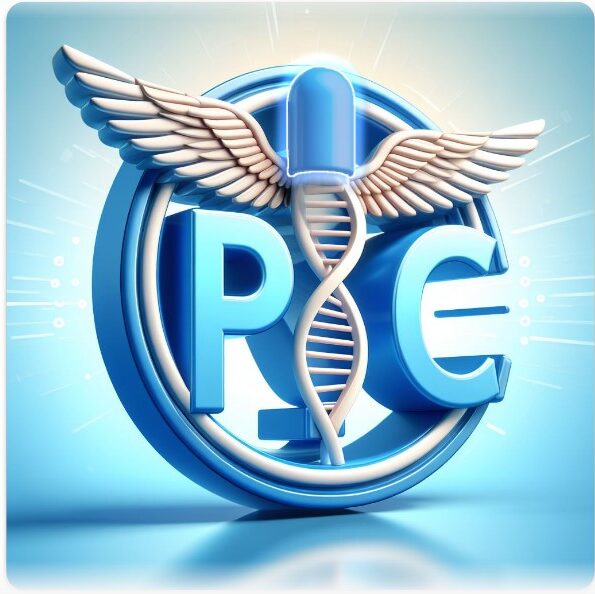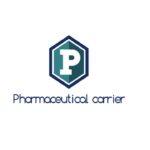- Introduction to HPLC Method Development
- A beginner’s guide to understanding HPLC method development.
- Choosing the Right HPLC Column for Your Analysis
- Exploring the different types of HPLC columns and how to select the most suitable one.
- Mobile Phase Selection in HPLC Method Development
- A deep dive into the importance of selecting the appropriate mobile phase and its impact on separation.
- Key Parameters in HPLC Method Optimization
- Discussing critical parameters like flow rate, temperature, and injection volume in method optimization.
- Gradient vs. Isocratic HPLC: When to Use Which?
- Exploring the advantages and disadvantages of gradient and isocratic elution in HPLC.
- HPLC Detectors: Types and Applications
- Providing an overview of different detectors used in HPLC and their applications.
- Troubleshooting HPLC Method Development Issues
- Common challenges and solutions in the HPLC method development process.
- Validation of HPLC Methods: Ensuring Accuracy and Precision
- Discussing the importance of method validation in HPLC and regulatory guidelines.
- Advancements in HPLC Method Development
- Exploring the latest trends and technologies in the field of HPLC method development.
- HPLC Method Development for Pharmaceutical Analysis
- Focusing on the specific requirements and challenges in pharmaceutical applications.
- HPLC Method Development for Environmental Monitoring
- Discussing how HPLC is used to analyze environmental samples for pollutants and contaminants.
- Food and Beverage Industry Applications of HPLC Method Development
- Exploring the role of HPLC in ensuring food safety and quality.
- Bioanalytical HPLC Method Development
- Highlighting the unique considerations when developing HPLC methods for biomolecules.
- Hyphenated Techniques in HPLC Method Development
- Discussing the combination of HPLC with other analytical techniques like mass spectrometry (LC-MS) and UV-Vis spectroscopy.
- Case Studies in HPLC Method Development
- Real-world examples of successful HPLC method development projects and their outcomes.
- Best Practices for Documentation in HPLC Method Development
- Guidelines for maintaining thorough and compliant records during the method development process.
- HPLC Method Transfer and Validation for Quality Assurance
- Explaining the steps involved in transferring and validating HPLC methods across laboratories.
- Future Trends in HPLC Method Development
- Speculating on the evolving landscape of HPLC and its impact on method development.
Applications of HPLC
- “HPLC in the Wine Industry: Analyzing Grape Compounds for Quality Control” Explore how HPLC is used to analyze the chemical composition of grapes and wine, ensuring quality and authenticity.
- “HPLC in Sports Doping Detection: Unmasking Performance-Enhancing Substances” Discuss how HPLC plays a critical role in detecting banned substances in athletes’ samples, protecting the integrity of sports.
- “HPLC in Herbal Medicine: Characterizing Active Compounds in Natural Remedies” Explore how HPLC is utilized to identify and quantify bioactive compounds in herbal remedies and supplements.
- “HPLC in Forensic Science: Analyzing Drugs and Toxins in Biological Samples” Discuss the application of HPLC in forensic toxicology, helping solve crimes and establish cause of death.
- “Environmental Monitoring with HPLC: Detecting Pollutants in Water and Soil” Highlight how HPLC is used to analyze pollutants and contaminants in environmental samples, aiding in pollution control.
- “HPLC in Cosmetics: Evaluating Ingredients for Safety and Efficacy” Explore how HPLC is employed to assess the composition of cosmetics and ensure product safety.
- “Food Authenticity Testing with HPLC: Detecting Adulteration in Premium Products” Discuss how HPLC helps verify the authenticity of high-value food products like olive oil, honey, and spices.
- “HPLC in Pharmaceuticals: Assuring Drug Purity and Quality” Explain the crucial role of HPLC in pharmaceutical manufacturing, ensuring the quality and potency of medications.
- “HPLC in Space Exploration: Analyzing Extraterrestrial Samples” Explore how HPLC technology is adapted for use in space missions to analyze samples from other celestial bodies.
- “HPLC in Archaeology: Dating and Analyzing Ancient Artifacts” Discuss how HPLC is employed to date archaeological finds and analyze the composition of ancient materials.
- “HPLC in Personalized Medicine: Tailoring Drug Dosages for Individual Patients” Explore the role of HPLC in pharmacokinetics and individualizing drug therapy for patients.
- “HPLC in Aquatic Ecology: Studying Water Quality and Ecosystem Health” Explain how HPLC is used to monitor water quality, detect pollutants, and assess the health of aquatic ecosystems.
- “HPLC in the Cannabis Industry: Analyzing Cannabinoid Profiles for Medical and Recreational Use” Discuss how HPLC is used to analyze the cannabinoid content of cannabis products, ensuring consistency and safety.
- “HPLC in Aerospace Materials Testing: Ensuring Safety in Aircraft Construction” Explore how HPLC is employed to test the integrity and composition of materials used in aircraft construction.
- “HPLC in Microbiology: Identifying Microbial Metabolites and Bioproducts” Highlight the use of HPLC in microbiological research to analyze microbial metabolites and bioproducts.
- “HPLC in Veterinary Medicine: Analyzing Pharmaceuticals and Toxins in Animal Health” Explore how HPLC is utilized in veterinary medicine to ensure the safety and efficacy of medications and detect toxins in animals.
- “HPLC in Aerospace: Analyzing Rocket Propellants and Aerospace Materials” Discuss how HPLC is applied in the aerospace industry to analyze propellants and ensure the reliability of spacecraft materials.
- “HPLC in Nanotechnology: Characterizing Nanoparticles and Nanomaterials” Explore how HPLC techniques are used to study and characterize nanoparticles for various applications.
- “HPLC in Perfume and Fragrance Analysis: Identifying Aromatic Compounds” Discuss how HPLC is employed to analyze and quantify the aromatic compounds in perfumes and fragrances.
- “HPLC in Aquaponics: Monitoring Nutrient Levels for Sustainable Agriculture” Highlight the role of HPLC in aquaponics systems to measure nutrient levels and optimize plant growth in sustainable agriculture.
- “HPLC in Space Medicine: Analyzing Biochemical Changes in Astronauts” Explore how HPLC is used to study the biochemical changes in astronauts during space missions and their impact on health.
- “HPLC in Personal Care Products: Ensuring Safety in Skincare and Cosmetics” Discuss how HPLC is employed to analyze active ingredients and contaminants in personal care products.
- “HPLC in Geochemistry: Studying Earth’s Processes through Rock and Soil Analysis” Explain how HPLC techniques are used in geochemistry to analyze rocks and soil samples for insights into Earth’s history and processes.
- “HPLC in Art Authentication: Detecting Forgeries and Provenance Analysis” Explore how HPLC can be used to authenticate artworks by analyzing materials, pigments, and varnishes for provenance analysis.
- “HPLC in Aerospace Lubricant Analysis: Ensuring Smooth Operation” Discuss how HPLC is employed to analyze lubricants used in aerospace machinery to maintain their performance and safety.
- “HPLC in Food Packaging: Ensuring Safety and Compliance” Explain how HPLC is used to analyze the safety of materials used in food packaging, including the detection of potential contaminants.
- “HPLC in Renewable Energy: Analyzing Biofuels and Solar Cell Materials” Explore how HPLC techniques are applied to analyze materials for renewable energy production, such as biofuels and solar cell components.
- “HPLC in Petrochemical Industry: Monitoring Hydrocarbon Quality and Composition” Discuss how HPLC plays a crucial role in the petrochemical industry for quality control and analyzing hydrocarbon compositions.
- “HPLC in Marine Biology: Analyzing Marine Toxins and Chemical Ecology” Highlight the use of HPLC in marine biology for studying marine toxins and chemical interactions among marine organisms.
- “HPLC in Sports Nutrition: Analyzing Supplements for Athletes” Discuss how HPLC is used to verify the purity and contents of nutritional supplements used by athletes for performance enhancement.
Pharmacareer team is a team of Experts from every department of Pharmaceutical industry having enriched experience. Experts have work experience of many multinational pharmaceutical industries worldwide.


